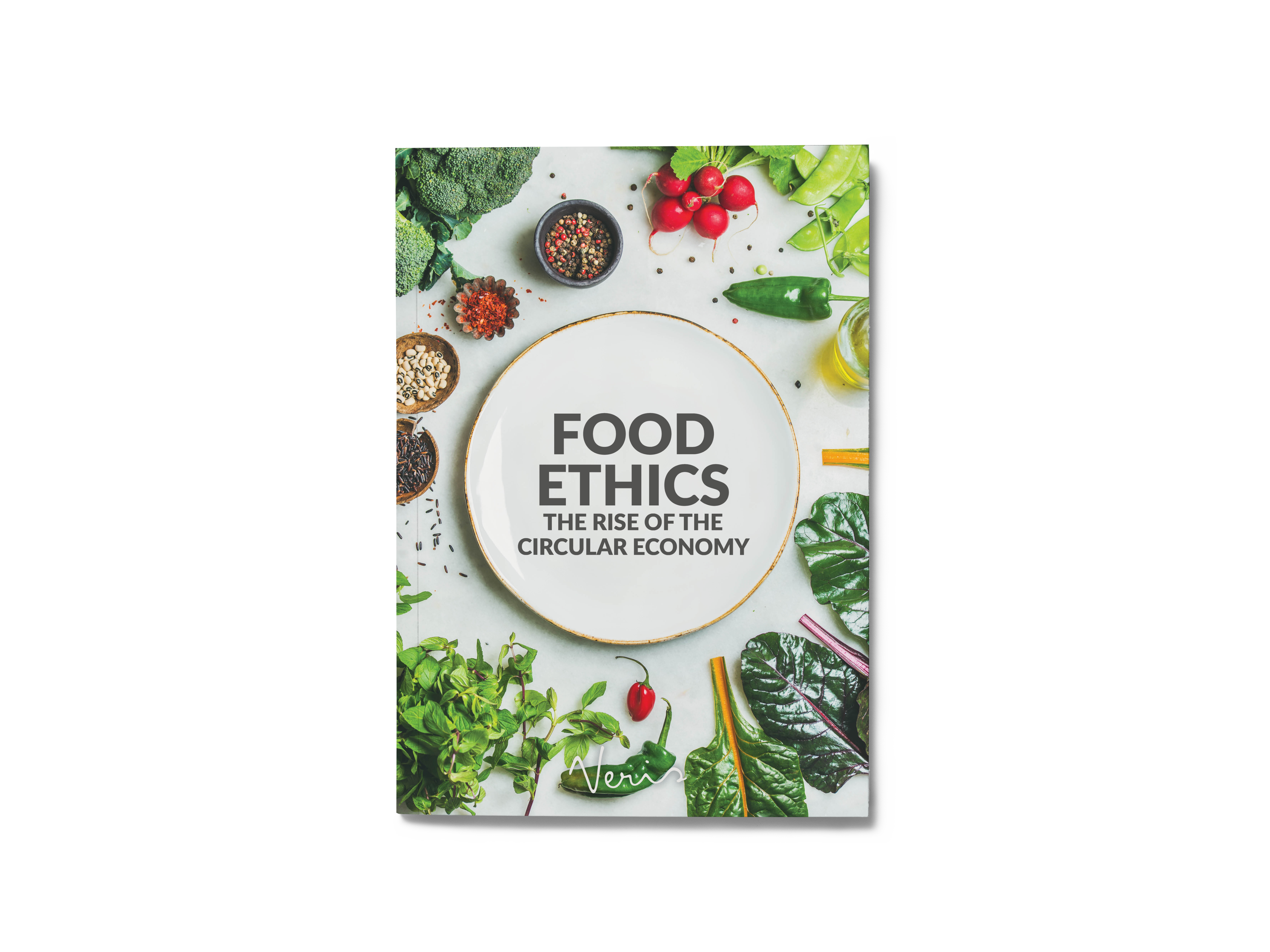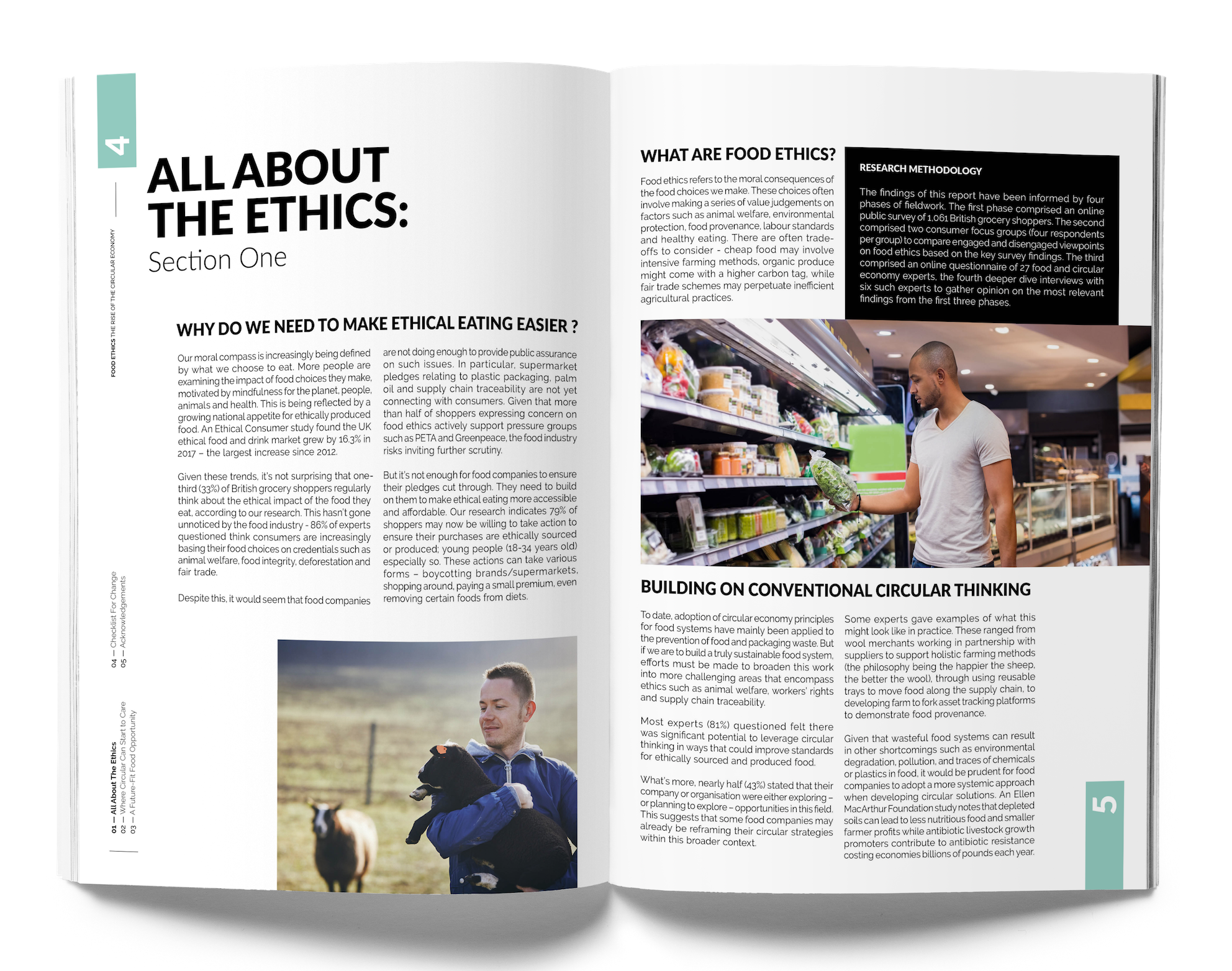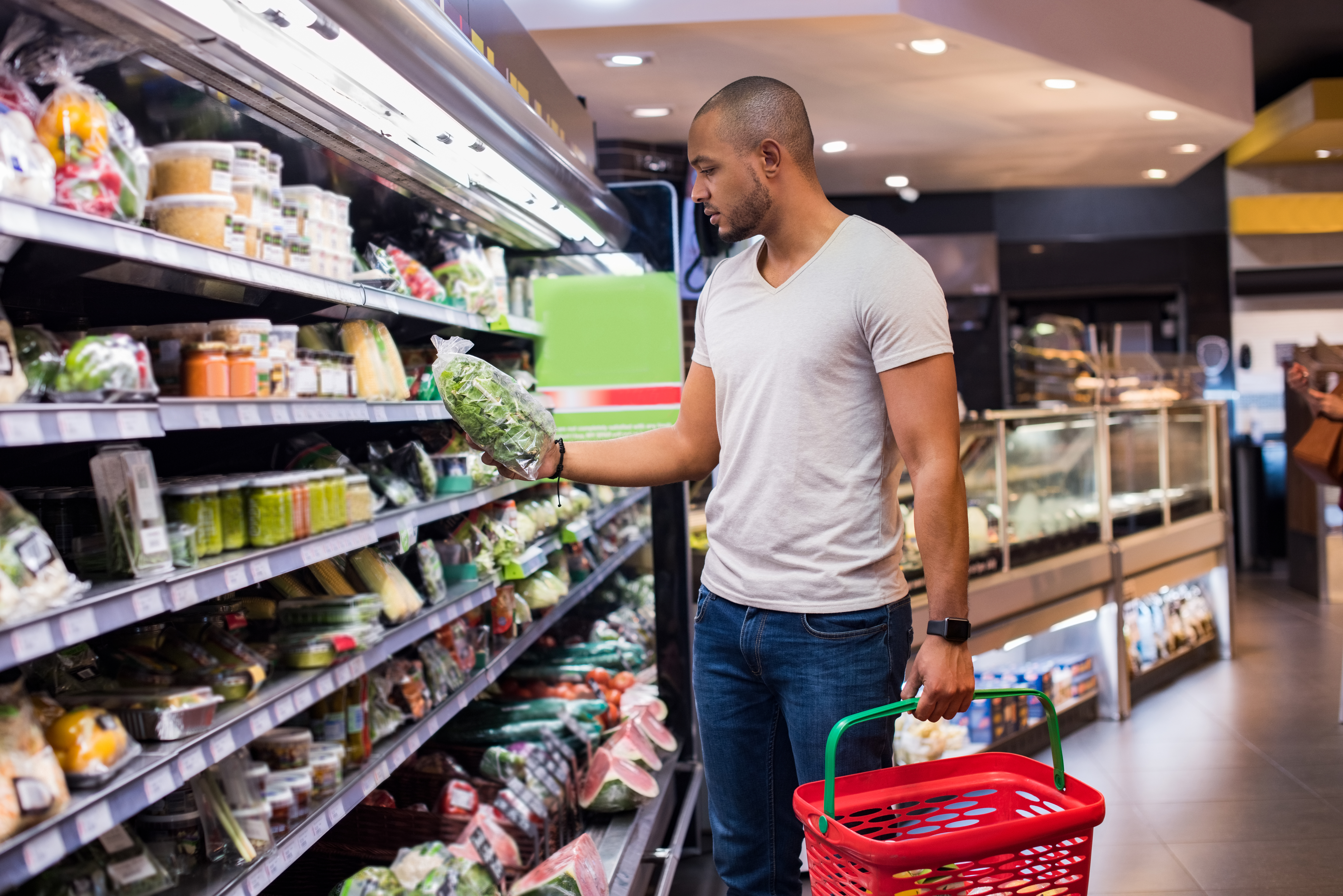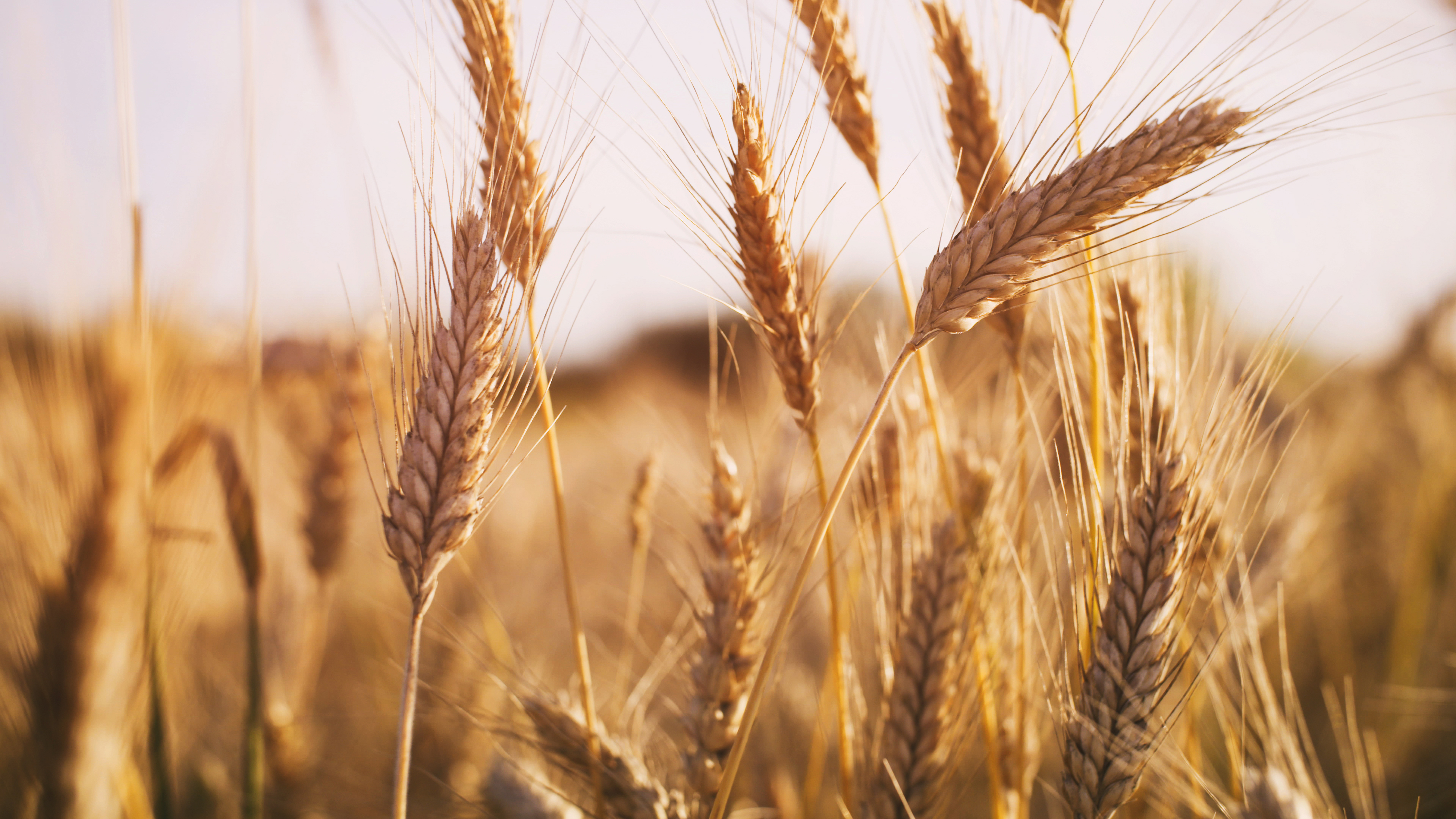Food Ethics: The Rise of the Circular Economy. New report released.
One third of British grocery shoppers regularly think about the ethical impact of the food they eat.
Future food systems must capitalise on circular thinking to improve ethics, report says
The circular economy represents a huge opportunity for the food industry to build a fairer food system given that one-third (33%) of British grocery shoppers regularly think about the ethical impact of the food they eat, according to a new report out today from Veris Strategies.
To date, circular thinking in the food industry has mainly focused on the prevention of food waste. However the report argues that circular food strategies need to be reframed so that morally conscious approaches can be better promoted. This means broadening circular economy work into more challenging areas such as animal welfare, worker’s rights and supply chain traceability.
The report ‘Food Ethics: The Rise of the Circular Economy’ draws on nationwide consumer research and contributions from 27 food and circular economy experts1. It finds the ethical food issues that resonate most with shoppers – animal welfare, meat reduction, fair deals for farmers, deforestation and food shortages – can all be addressed by applying circularity in a more holistic way.
Whether it’s moving towards mixed agriculture and better husbandry with the resulting benefits that brings for land and livestock, maximising every gram of harvested protein through better data and asset tracking, or bringing food closer to home to improve farmer livelihoods, the circular economy can act as a forceful facilitator.
The report comes after the major study by the Intergovernmental Panel on Climate Change (IPPC) warning that a total rethink of our food system is needed to avoid the most devastating impacts of global food production such as deforestation, biodiversity loss and accelerating climate change2.
Among the IPPC recommendations were a call for developed countries like the UK to support and incentivise carbon-neutral or low-carbon meat production. Circular economy approaches can help enable these shifts by promoting a more regenerative and efficient food system, which in turn could lessen the need for intensive farming.
“By applying circular principles, there is a clear opportunity here for farmers to ‘do more with less’ by improving both the quality and yield of meat they produce and building a reputation for premium products both home and abroad,” the Veris Strategies report states.
Key findings from the Veris Strategies report include:
• One-third (33%) of British grocery shoppers regularly think about the ethical impact of the food they eat. This hasn’t gone unnoticed by the food industry – 86% of experts questioned think consumers are increasingly basing their food choices on credentials such as animal welfare, food integrity, deforestation and fair trade.
• Most experts (81%) felt there was significant potential to leverage circular thinking in ways that could improve standards for ethically sourced and produced food. Some food companies may already be reframing their circular strategies within this broader context as nearly half (43%) stated that their organisation were either exploring – or planning to explore – opportunities in this field.
• There are barriers to overcome if the food industry is to scale up circular thinking. Experts cited mindset, behaviour change, and a lack of knowledge / skills as the key stumbling blocks.
The report draws on contributions from 27 food and circular economy experts to outline examples of how food companies can instigate circular action in the areas that matter most to consumers – animal welfare, meat reduction, fairer farming, reversing deforestation and food security.
One expert, Mike Barry, former director of sustainable business at Marks & Spencer, points to the benefits of farmers utilizing residual flows from their agricultural and food industrial processes to develop sustainable animal feed. This, he says, can help displace crop-based feeds like Soy that are sourced from deforested regions such as the Amazon.
Another expert, Jim Brisby, group commercial director at Cranswick, says his company is building a vertically integrated agrofood system to improve welfare and sustainability standards. By sourcing most of its meat through its own farms, Cranswick is able to rear its livestock in more compassionate ways while keeping wastage in its meat processing factories extremely low.
Commenting on the report and its findings, Kate Cawley, founder of Veris Strategies, said: “Food is not only wasted on an unprecedented level, it is often produced at the expense of unnecessary animal suffering, human rights, equality and environmental protection.
“It’s clear that morally conscious approaches can be better applied and promoted when it comes building more resilient, resource-efficient food systems. Importantly, these approaches can help address the ethical issues that matter most to consumers – animal welfare, meat reduction, fairer farming, reforestation and food security.”
“We hope our report offers some answers to the pressing challenges outlined by the IPPC study, particularly the role that British farmers and meat producers can play in re-examining our food system to deliver better ethical eating choices for all.”
The report can be downloaded at: https://www.veris-strategies.co.uk/food-ethics-the-rise-of-the-circular-economy
1The findings of this report were informed by a survey of 1,061 British grocery shoppers followed by two consumer focus groups, and survey / telephone interviews with 27 food and circular economy experts.
2Climate Change and Land – Summary for Policymakers, August 2019, IPPC
ENDS
About Veris Strategies
Veris Strategies is specialist agency dedicated to helping ambitious businesses future-proof against climate risk using cultural change and campaign strategies.
https://www.veris-strategies.co.uk
i: verisstrat
t: verisstrat
l: Veris Strategies
Press release distributed by Pressat on behalf of Veris Strategies, on Tuesday 10 December, 2019. For more information subscribe and follow https://pressat.co.uk/
Sustainable Food Circular Economy Sustainability Food Systems Meat Reduction Meat Food Shortages Animal Welfare Farmers Deforestation Business & Finance Environment & Nature Farming & Animals Food & Drink
Published By

07766 148181
emma.victor-smith@veris-strategies.co.uk
https://www.veris-strategies.co.uk
Visit Newsroom
You just read:
Food Ethics: The Rise of the Circular Economy. New report released.
News from this source:






